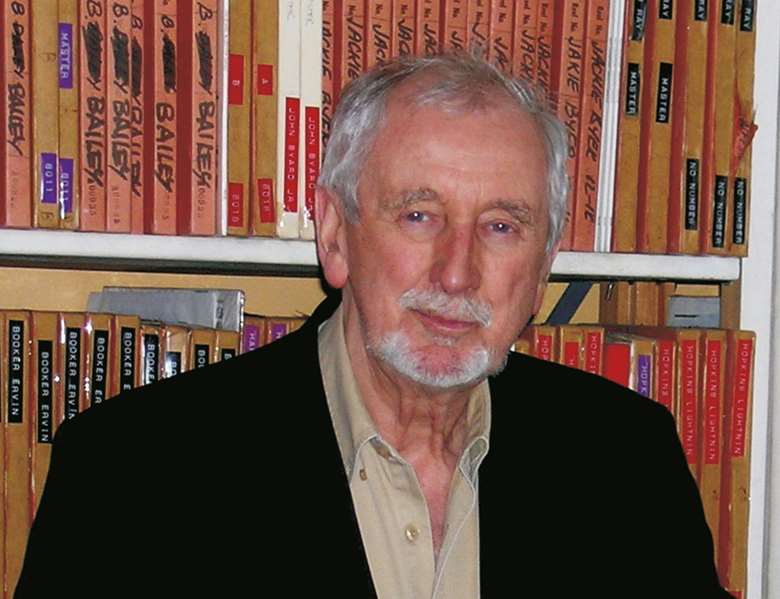ALAN BATES: 26/08/1925 – 30/01/2023
Brian Priestley
Tuesday, February 7, 2023
Brian Priestley remembers the influential and important record producer and label boss Alan Bates who has died

Derby-born Alan Bates was a jazz record producer with an international reputation. His first impact was on the UK scene with the early 1960s co-founding of Interdisc, which provided the first organised imports of key labels such as Blue Note and Riverside, only previously available by expensive individual mail-order. He then collaborated with Atlantic to produce UK editions of jazz albums not previously released in Europe. While working for what became Polygram, he created two specialist series on Fontana, one consisting of new avant-garde-leaning sessions by American musicians in Europe (including Abdullah Ibrahim) and one of reissues from defunct US labels, whose rights he’d acquired.
These twin directions were pursued when he formed his Black Lion company in 1968, initially releasing on Polydor, then on its own label from 1971. He became more active in recording visiting Americans such as Dexter Gordon, Illinois Jacquet, Earl Hines, Ben Webster and Ruby Braff. A reissue series from George Wein’s Storyville subsequently led to harsh words (see Wein’s autobiography) but a leasing arrangement with Chris Barber’s independent productions was enormously successful, both here and even more so on the Continent. What brought Bates greater attention in US circles was his second label, Freedom, again recording Americans both in Europe and in the US, including Cecil Taylor, Anthony Braxton and the Art Ensemble of Chicago.
In the late 1970s Bates acquired the Candid label, initially set up by Nat Hentoff but by then owned by singer Andy Williams. As well as reissuing its classic 1960-61 albums, he made it his main vehicle for acquiring sessions by lesser-known Americans and eventually for launching more mainstream UK-based acts such as Stacey Kent and then Jamie Cullum. My only opportunity to observe Alan in the studio was the 1971 London session of Thelonious Monk when, noting Bates’s voluble enthusiasm, Art Blakey commented to Al McKibbon: “He reminds me of ‘motor-mouth’ – Orrin Keepnews”. But whatever his methods, Bates kept the flag of acoustic jazz flying in the fusion-filled 1970s and, as well as big successes, he recorded or reissued lots of music we should be grateful for.